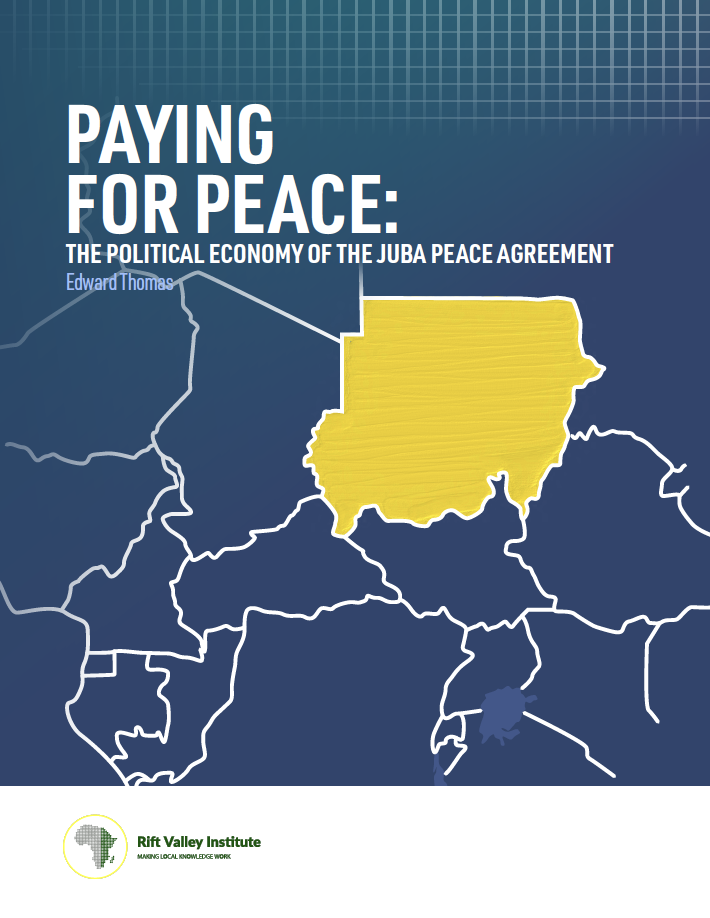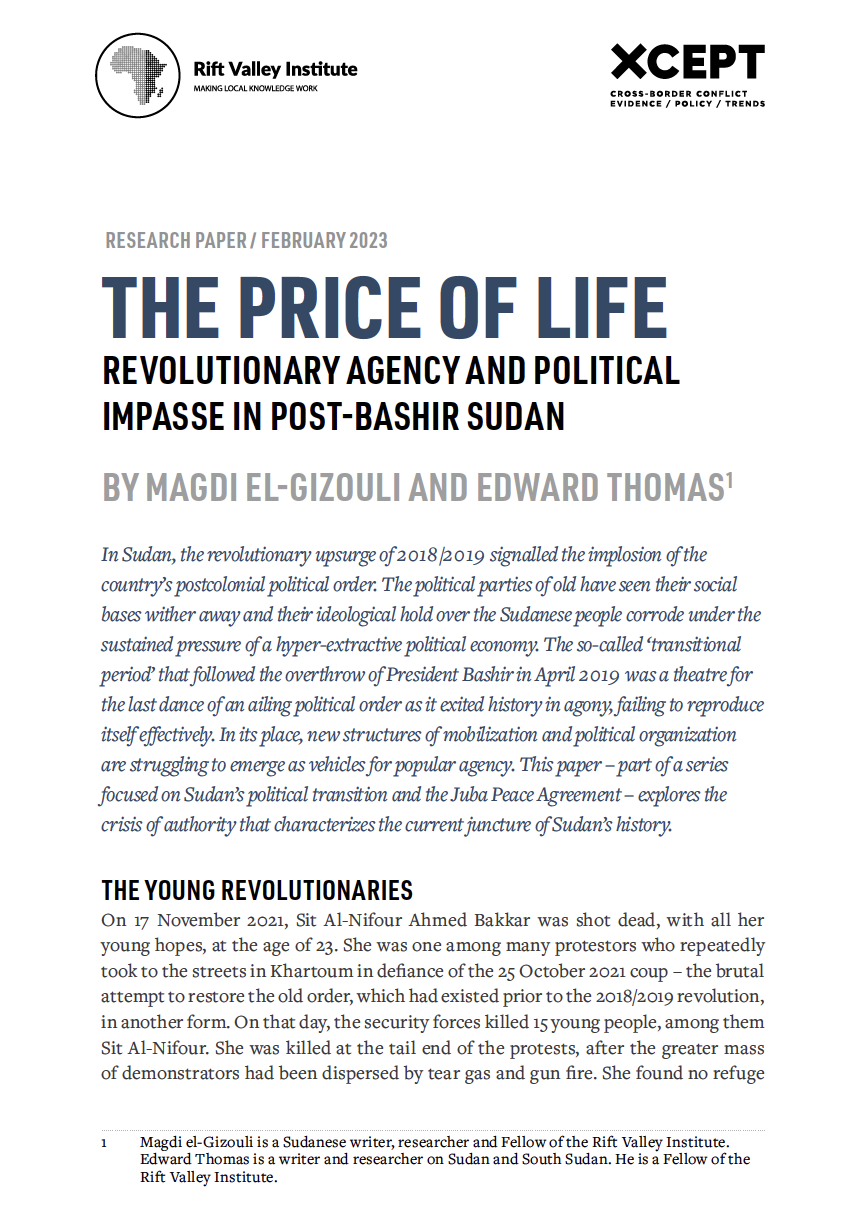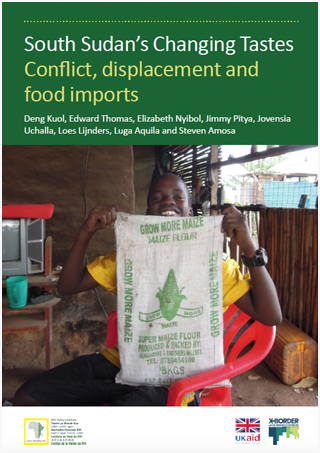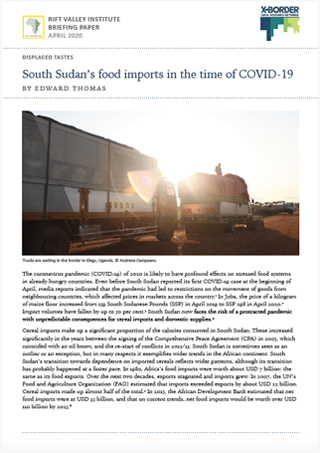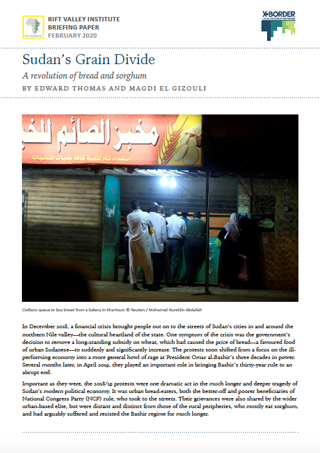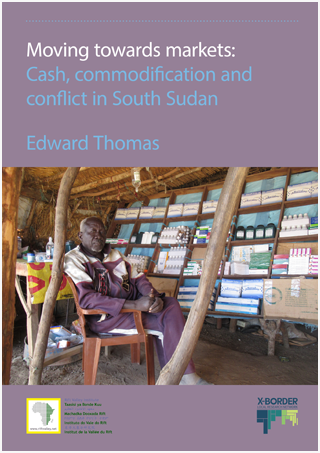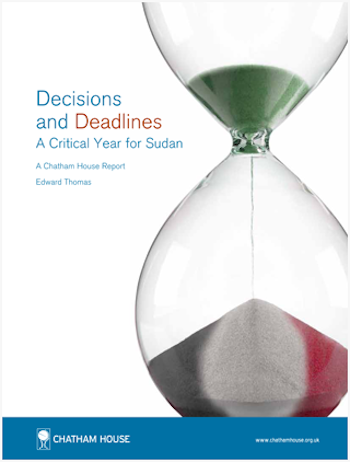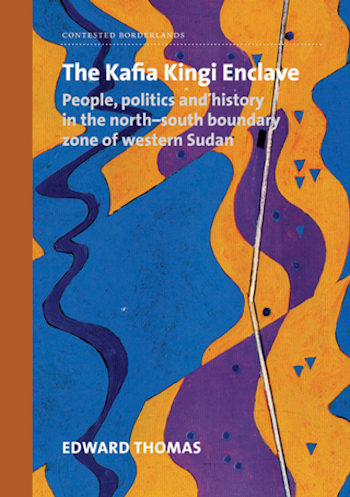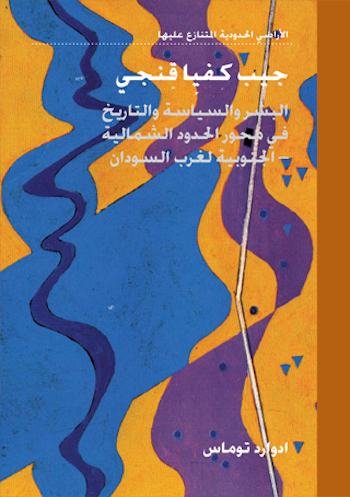SUMMARY Sudan’s economy is based on resources that have been exploited via violence rather than through peaceful, sustainable means. As a result, those who have benefited are those who control the means of violence. Furthermore, the inequalities in wealth,…
RVI publishes books, research reports, research papers, briefings and meeting reports in a range of formats. Publications cover policy, research, arts, culture and local knowledge in the countries of eastern and central Africa. Research publications—books, reports and papers—are peer-reviewed. Some RVI publications are also available in French and/or Arabic.
The RVI is a signatory of the Budapest Open Access Initiative (2001); all publications are free for download in PDF format under Creative Commons licences. The views expressed in books and reports published by the RVI are those of the authors, not the Institute.
SEARCH
PUBLICATION TYPE
LANGUAGE
REGION
COUNTRY
In Sudan, the revolutionary upsurge of 2018/2019 signalled the implosion of the country’s postcolonial political order. The political parties of old have seen their social bases wither away and their ideological hold over the Sudanese people corrode under the…
South Sudan’s long wars have forced millions of people to leave their own homes, farms and pastures and move to unfamiliar new areas of the countryside, to refugee camps and cities. In the process, they have changed the way…
The coronavirus pandemic (COVID-19) of 2020 is likely to have profound effects on stressed food systems in already hungry countries. Even before South Sudan reported its first COVID-19 case at the beginning of April, media reports indicated that the…
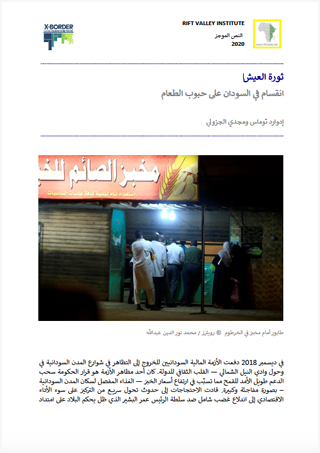
This briefing unpacks the connected political and economic crisis that reached a climax in early 2019 through the contrasting but connected worlds of Sudan’s bread and sorghum eaters. Its conclusion presents the limited options available to the as…
Fifty years ago, most households in South Sudan produced the grain they ate, organizing agricultural labour and distributing small surpluses mostly through kinship and other social networks. Now, the majority of households buy most of their food. This transition…
A policy paper on Sudan’s political future analysing the critical events facing the country in the run up to the April 2010 elections and the 2011 referendum on self-determination for Southern Sudan. Copublished by RVI with Chatham House (the Royal Institute…
When South Sudan became a separate state in 2011, its northern boundary with the Republic of Sudan became an international border, the longest and most contentious in the region. At the westernmost extremity of Sudan, Kafia Kingi is a…
تُعتبر كفيا قنجي الواقع على الطرف الغربي الأقصى للسودان نقطة إلتقاء رئيسية بين دارفور وجنوب البلاد؛ وتخضع هذه المنطقة الغنية بالمعادن حالياً لإدارة جنوب دارفور، لكن من المتوقع إعادتها إلى مقاطعة راجا في جنوب السودان بموجب بنود اتفاقية السلام…
Recent Publications

Rethinking Ethiopia II: Youth and politics
February 26, 2026
Seminar report Rethinking Ethiopia, a collaborative essay competition initiative between Addis Ababa University’s Institute for Peace and Security Studies (IPSS) and the Rift Valley Institute’s (RVI) Peace Research Facility (PRF), offers a platform for Ethiopian youth to express their ideas

2025 Year in Review
February 16, 2026
The 2025 Year in Review provides an overview of the Rift Valley Institute’s work over the past year across eastern and central Africa. The report highlights RVI’s research and publication outputs, education and training activities, and public forums and convenings,

Rethinking Aid in Sudan and South Sudan
January 28, 2026
The brief draws on a joint convening held in Kampala, Uganda, in November 2025, which brought together more than 45 Sudanese and South Sudanese participants representing more than 30 grassroots organizations and international NGOs. Its primary objective is to amplify

